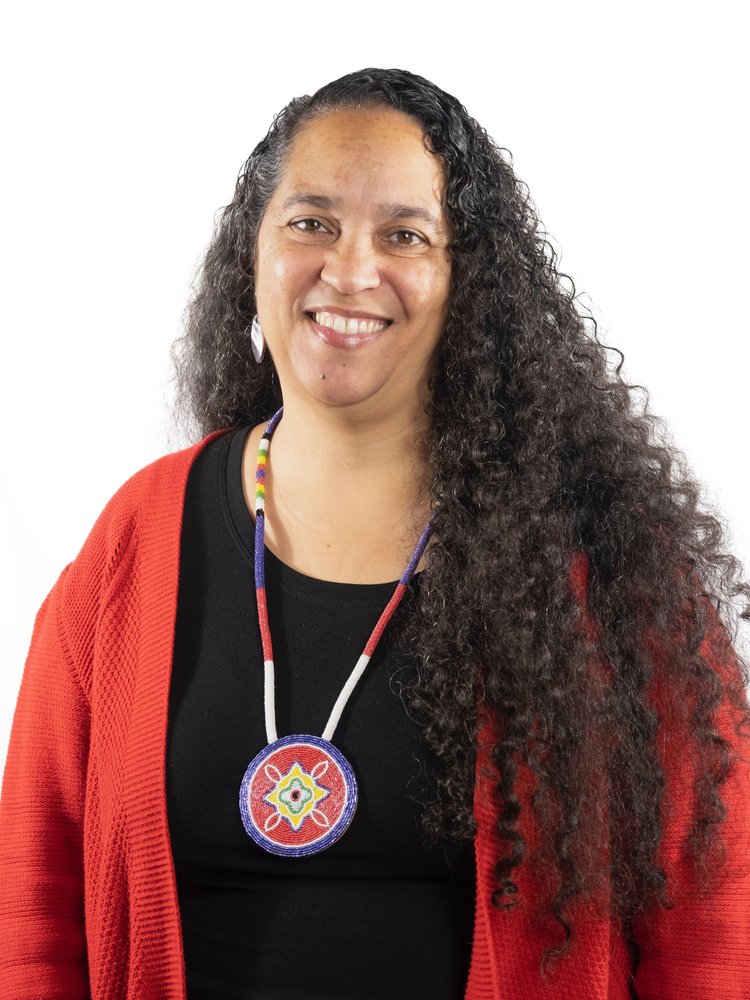
Our state is home to a unique and inspiring institution, the Tomaquag Indigenous Museum in Exeter. The museum is led by executive director Lorén M. Spears, an artist and author with a background in education. Spears is an enrolled Narragansett Tribal Nation citizen. Tomaquag is the only museum in Rhode Island entirely dedicated to telling the story of the Indigenous peoples of the Dawnland and the only Rhode Island museum operated by Indigenous people. It was founded in 1958 by Eva Butler, an anthropologist, with the guidance of the late Princess Red Wing (Narragansett/Wampanoag).
Spears says that she basically grew up in the museum. In the 1970s her mother, Dawn Dove, coordinated the volunteers who staffed the museum. For Spears, the museum was her playground and hangout, as well as the center of her community. She would go on to volunteer, become a member of the museum’s board of directors, run a small school at the museum, and eventually become executive director in 2003. The history of the institution and the woman are strikingly symbiotic, each growing as a result of the other over time.
It is essential that we revisit our history. It is a history of conquest and colonization, of genocide and forced migration, of erasure and broken promises — many, many broken promises. That history can’t be changed, but unless it is acknowledged and examined, there is a great likelihood that more trauma will be inflicted, and little chance that we will ever approach equality. Throughout colonization and genocide, Indigenous people have persevered. One of the guiding values of the Tomaquag Museum is resilience: “We are devoted to the belief that Indigenous history and culture are relevant today. We live for the next seven generations, and we know the practices of our ancestors as they have been passed down to us will benefit not only our communities but our collective world community tomorrow.”
Tomaquag Museum is a friendly and welcoming place. It is dedicated to engagement and shared dialogue with “all of our relations, everyone.” Spears expands this, saying, “In our tradition ‘all of our relations’ includes the plants and animals and the land. We are all one.” Silvermoon Mars LaRose, the assistant director of Tomaquag Museum (and this issue’s cover artist), says, “We provide a safe space for everyone to come and ask anything. As offensive as some of the questions might be, it’s okay, because unless you’re willing to have those conversations and attack those stereotypes and those myths and give them truthful information they are going to carry those thoughts and feelings on.”
Tomaquag Museum is a center for research. People come from all over the world to study the collections of documents and artifacts. Spears, however, expresses her interest in stories of personal experience over academic research. Her own history is one such story: a girl of the Narragansett who grew up in a museum. As she grew older she realized that people like her were seldom represented in the larger community or worse, misrepresented as stereotypes that didn’t connect with her or her view of the world. This was hurtful, but for all those years the museum had been surrounding her with objects that told the story of her ancestors. Finely woven baskets, handcrafted beadwork, music and dances passed down over generations helped instill in her a deep knowledge that her people had always been here, had never gone away, and were here now.
It is an exciting time of growth for Tomaquag Museum. The staff is expanding its programs, including direct services aimed at empowering young people. Plans are well under way to create a larger, more centrally located campus. This Women’s History Month, consider making a visit to the museum and a donation in support of all they do for Rhode Island.